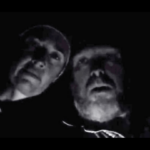The Misconceptions of Pseudolegal Preachers – Part 1: Understanding the Law

Nobody likes to be misled, particularly when it comes to something as important as the law and legal process.
In fact, relying on inaccurate legal advice can have dire consequences, potentially resulting in being charged and convicted in circumstances where this could have been avoided altogether.
But sadly, the last several years has seen many intelligent, discerning people in Australia – and other parts of the world – taking incorrect advice from YouTube videos and obscure websites as legal fact.
The reality of the situation is that proponents of “pseudolaw” movements systematically spread false and potentially dangerous information, persisting with their conduct despite the damage caused to themselves and indeed others.
Pseudolaw movements take many names and forms: Sovereign Citizens, Freemen on the Land, Detaxers, the Moorish sovereignty movement, Church of the Ecumenical Redemption International; the list goes on, but their common thread is that the advice they disseminate is almost invariably both factually and legally incorrect, and will not be accepted inside a courtroom.
Deadly consequences
Over and above this, going down the pseudolaw rabbit hole can lead to deadly consequences.
Recently in the United States, a 25 year old man named Chase Allen was shot dead by police after getting into an altercation during a traffic stop whilst ardently professing the false pseudolaw belief that he did not require a licence to drive or need to register his vehicle.
Closer to home, the shooting of Queensland constables Rachel McCrow and Matthew Arnold late last year was the result of three individuals falling into a rabbit hole of conspiracy theories, including pseudolaw beliefs to the effect that they were exempt from Australian laws.
Well-meaning but misinformed and dangerous
Whilst proponents of pseudolaw may be convinced of their views and seek to enlighten others, they seem at the same time to crave undeserved attention, respect and even notoriety.
Such persons, in reality, exemplify the Dunning Kruger effect in so far as they believe themselves to be intellectually superior to others – including those who have spent many years studying the law and decades practising it – and often resort to ad hominem insults when confronted with informed, reasoned and sensible information.
We think it’s time to dispel the enticing yet inaccurate views professed by those who are intent on enjoying all of the benefits our social systems provide while refusing to comply with the legal obligations that come with them.
So, here’s Part 1 of our three-part series debunking pseudolaw nonsense with a view to protecting you from its dangers.
The Sources of Law
A common theme in pseudolegal movements is the idea that certain laws are invalid because they do not come from the correct source.
Sometimes, this takes the form of believing that only certain religious texts, such as the Christian Bible or the Islamic Quran, are the “true source” of enforceable law.
Other times, it is argued that law found within legislation or statutes is invalid, and only “common law” applies in Australia.
Whilst you can certainly morally object to laws and think they need changing, the sources of enforceable law in Australia are pretty clear. There are three main sources of law in Australia:
- Constitutional law: which refers to the doctrines espoused in both the Australian constitution and relevant state constitutions.
- Legislation: which are laws made by Federal, State and Territory parliaments, commonly referred to as ‘Acts’ or ‘Statutes’.
- Case law: which consists of the principles derived from the decisions of judges (going back to England) over the last 800 years, commonly referred to as ‘common law’ or ‘precedent’.
Pseudolaw scams will often cite very old case law to justify their claims. However, this ignores two important features of Australian law: that case law can change over time and that if there is an inconsistency between case law and legislation, the legislation prevails.
As an example, going all the way back to Medieval England, we the common law offence of being a “common scold”. A person (almost always a woman) could be found to be a “common scold” if they habitually chastise, argue or quarrel with their neighbours.
Blackstone’s Commentaries on the Laws of England, outlined that the punishment for being a common scold as utilising a “trebucket, castigatory, or ducking stool”. All means of dunking a woman into water.
The practice generally fell out of favour into the 19th century, but it wasn’t until the passing of the Criminal Law Act of 1967 (NSW) that the offence of being a common scold was formally abolished in NSW, as legislation supplanted the common law.
If a pseudolaw guru were to tell you they were going to “charge you with being a common scold” they can believe that all they like, but the law says that offence has been abolished. We know that by looking at the most up to date sources of law.
Jurisdiction
The term “jurisdiction” refers to the legal authority granted to a body to hear disputes and enact justice.
Pseudolaw scams will often claim that most courts don’t have jurisdiction over most legal matters.
In 2017, former Subway spokesman Jared Fogle filed two motions to overturn his convictions for child sex tourism and child pornography, on the basis that the trial court had no jurisdiction to hear his case. This was swiftly dismissed, with the judge commenting that his argument had “no conceivable validity in American law”.
One variant sometimes seen in Australia, is the belief that our courts have no jurisdiction over land as they are “admiralty courts” and can only hear matters which occur at sea. This is not the case.
Chapter III of the Australian Constitution establishes the High Court of Australia as the recipient of judicial power of the Commonwealth and the ultimate appellate jurisdiction for all courts in Australia.
There are also two further Federal courts:
- The Federal Court of Australia, which can hear matters relating to bankruptcy, corporations, industrial relations, native title as well as disputes regarding taxation and trade practices law. It also hears appeals from the Federal Circuit Court.
- The Federal Circuit and Family Court of Australia, which can here family law matters under the Family Court division and the Federal Circuit Court division which disputes in administrative law, admiralty law, bankruptcy, copyright, human rights, industrial law, migration, privacy and trade practices.
At a State level, the Constitution Act 1902 (NSW) along with separate legislation for each court, establishes the jurisdiction of NSW courts. Generally, if a dispute arises in NSW, a relevant NSW court will have jurisdiction to hear the matter.
The Local Court of NSW can hear civil cases (up to $20,000 in the small claims division and up to $100,000 in the general division), less serious criminal cases, applications for apprehended violence orders, applications related to driver’s licenses and some family law matters.
The District Court of NSW can hear civil cases (between $100,000 and $1.25 million), criminal cases except for murder, treason and piracy, as well as appeals from the Local Court.
The Supreme Court of NSW can hear civil cases (more than $1.25 million), the most serious criminal matters and appeals from the District Court.
There is no escaping or avoiding the relevant jurisdiction of each of these courts, and arguing that a court does not have jurisdiction when it explicitly does under law is likely to unnecessarily draw out your legal case.
Scope of The Criminal Law
Pseudolaw scams will also often claim that the criminal law has no application if there isn’t a victim. Sometimes this is framed that “criminal law requires harm or loss”.
You’ll often see this argument being use in an attempt to avoid speeding fines or liabilities for taxation fraud.
This belief appears to come from a misunderstanding of the differences between two different areas of law: criminal law and tort law.
A “tort” is a civil wrong. Examples of torts include negligence, defamation, nuisance and the intentional torts of assault, battery and false imprisonment. As tort law sits within the civil law jurisdiction, an action under this area of law involves suing another person, not a criminal prosecution.
Some torts, such as negligence, do in-fact require there to be proof of some harm or “loss” experienced by the claimant. However, the intentional torts (such as assault) are actionable per se and don’t require proof of loss to sue another person.
The doctrines of tort law have no relevance to criminal law liability. Although many criminal offences focus on protecting the public from harm, there is no requirement that harm form part of an offence.
Here are just some offences under the Crimes Act 1900 (NSW) which don’t require any proof of loss or harm:
- Bigamy (section 92).
- Possession of an unregistered firearm in a public place (section 93I).
- Conducting an unlawful gambling operation (section 93V).
- Giving false or misleading information to a public authority (section 307B).
- Gaining unauthorised access to restricted data held on a computer (section 308H).
- Perjury or making a false statement under oath (section 327).
- Impersonating a police officer (section 546D).
More extensive examples of non-violent actions constituting criminal offences are found in other sources of NSW criminal law, including:
- The Summary Offences Act 1988 – which largely deals with non-violent offences impacting public order.
- The Drug Misuse and Trafficking Act 1985 – which outlines many non-violent drug offences in NSW.
- The Road Transport Act 2013 – which outlines the rules and penalties attached to operating a motor vehicle in the state.
Seek specialist legal advice
If you wish to be informed about the law, it is important to obtain information from credible local sources in order to avoid falling into a destructive and dangerous rabbit hole of misinformation propagated by social media pages and channels.
If you are going to court for a criminal offence, it is vital to seek advice from a specialist defence team with decades of experience in defending and winning criminal cases.






